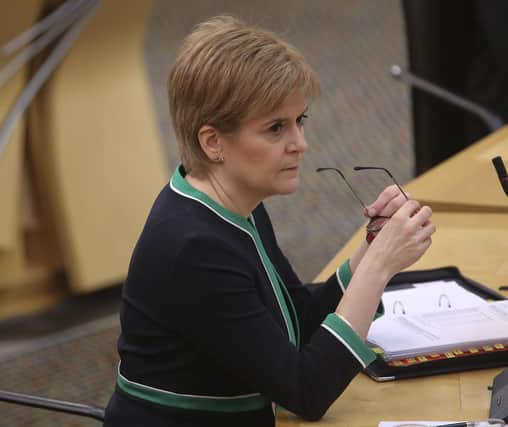EU citizens urged by Nicola Sturgeon to apply through scheme to stay in Scotland


First Minister Nicola Sturgeon has written an open letter setting out that everyone who wishes to stay should complete a Settlement Scheme application by June 30.
The Scottish Government believes such citizens should not need to apply to protect their rights. However, the UK Government has made it a requirement.
Advertisement
Hide AdAdvertisement
Hide AdFirst Minister Nicola Sturgeon said: "My message to everyone from the EU who lives and works here remains this - Scotland is your home, you are our family, and we'd be privileged if you would stay here with us.
"We are drawing close to the end of the Brexit transition period, and the end of a year in which we have together faced the unprecedented challenge of the Covid-19 pandemic.
"In these times of uncertainty and disruption, I would like to once again reassure EU citizens that Scotland values you for the contribution you make to our society, our culture and our economy.
"While I don't agree that you should have to go through an application process to secure rights that you should automatically have, I do want to ensure that you are able to stay in Scotland.
"Many EU citizens have already applied for the Settlement Scheme - but many more do still need to apply.
"My message is a simple one. Please apply. Scotland is a better place because you are living here."
The open letter and video mark International Migrants Day on Friday.
It has been translated into Italian, Lithuanian, French, Polish, Romanian, Spanish and German.
Comments
Want to join the conversation? Please or to comment on this article.
